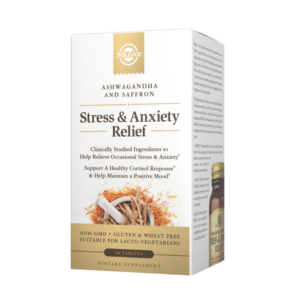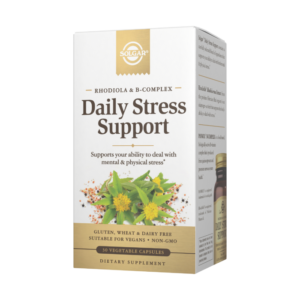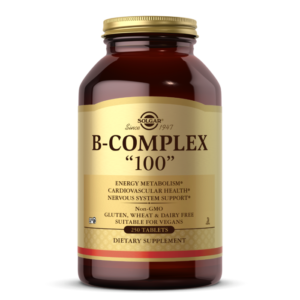Key Takeaways:
- Stress can affect heart health in a variety of ways, from conditions such as ‘broken heart syndrome’ to influencing lifestyle choices that are detrimental to heart health.
- Exercising, listening to music, doing breathing exercises, or taking a stress-supporting supplement are all effective, science-backed ways to help manage stress.
Stress can sometimes be useful – it may motivate you, help you work harder, or even save your life in dangerous situations. However, stress can also seriously impact heart health.
Let’s look at the connection between stress and heart health, as well as easy ways you can support both.
Acute vs. chronic stress
There are two types of stress: acute and chronic. Acute stress is short-term stress, like traffic or an argument with your spouse, while chronic stress is more long-term – like being unable to find a job.
Both acute and chronic stress can affect heart health.
Acute stress and heart health: ‘Broken heart syndrome’
One of the most common ways acute stress affects the heart is through a condition called broken heart syndrome.
What is ‘broken heart syndrome?’
Broken heart syndrome – or takotsubo cardiomyopathy – is an example of cardiovascular damage that can result from a severe, acute form of stress, such as the loss of a loved one or a natural disaster.1 This sudden, acute stress causes a rapid weakening of the left ventricle, the heart’s main pumping chamber.2
Broken heart syndrome occurs more often in women than men, especially after menopause.3 The good news is that broken heart syndrome is usually treatable, and most people who experience it make a full recovery in a few weeks.4
Chronic stress and heart health
How does the body respond to stress?
When stressed, either acute stress or chronic stress, the body releases the stress hormones epinephrine (adrenaline), cortisol, and norepinephrine. Each stress hormone has a special relationship with the heart, and circulatory system:5
- Epinephrine (adrenaline) increases the heart rate, raises blood pressure, and increases energy supplies.
- Cortisol floods the bloodstream with glucose and narrows the arteries.
- Norepinephrine raises the heart rate, releases glucose into the bloodstream, and increases blood flow to the muscles.
These stress hormones are in place to help you when you encounter a perceived threat. Cortisol curbs functions that would be nonessential in a fight or flight situation. This natural alarm system alters immune system responses, suppresses the digestive system, and helps the body focus its energy on facing the perceived threat. Once the perceived threat is passed, hormone levels return to normal.6
How does stress affect heart health?
When you experience chronic stress – day after day for an extended period – these hormones can have a detrimental effect on your heart health.
In play together, these hormones may trigger a higher demand for oxygen in the body, spasms in the heart’s blood vessels, and an interruption in electrical impulses. This may result in irregular heartbeats, chest pain, and shortness of breath.
Prolonged effects of chronic heart stress can include high blood pressure, increased heart rate, elevated blood sugar, and inflammation.7
Another study conducted by researchers from Harvard University found that when you are stressed, your amygdala (the area of your brain that deals with stress) signals to the bone marrow to produce extra white blood cells, which in turn causes the arteries to become inflamed.
The researchers from this study suggested that stress could be as important a risk factor for heart problems as smoking or high blood pressure.8
Indirect ways stress impacts heart health
There are also indirect ways that stress can impact heart health. When stressed, people tend to engage in unhealthy behaviors that lead to increased risk of heart issues, such as:9
- Smoking,
- Drinking,
- Overeating,
- Lack of physical activity,
- Unhealthy diet,
- Not taking medications as prescribed.
Stress can also wreak havoc on your sleep, make you feel forgetful, irritable, or out of control, and may lead to more serious mental health conditions.
5 ways to cope with stress
1. Exercise regularly
The “high” runners get after they’ve sprinted a few laps is a rush of endorphins, the brain’s natural mood-boosting chemicals. Exercise offers natural stress relief by raising levels of feel-good endorphins while lowering cortisol and other stress hormones.10
2. Make time for friends and family
Spending time with people you care about isn’t just fun; it is also scientifically proven to help with stress. Adequate amounts of social support are associated with increased levels of a hormone called oxytocin, which may help reduce cortisol levels.11
3. Take a stress-supporting supplement
Solgar offers a variety of science-backed, stress-supporting supplements to fit your needs. Here are a few great supplements to help support stress.*
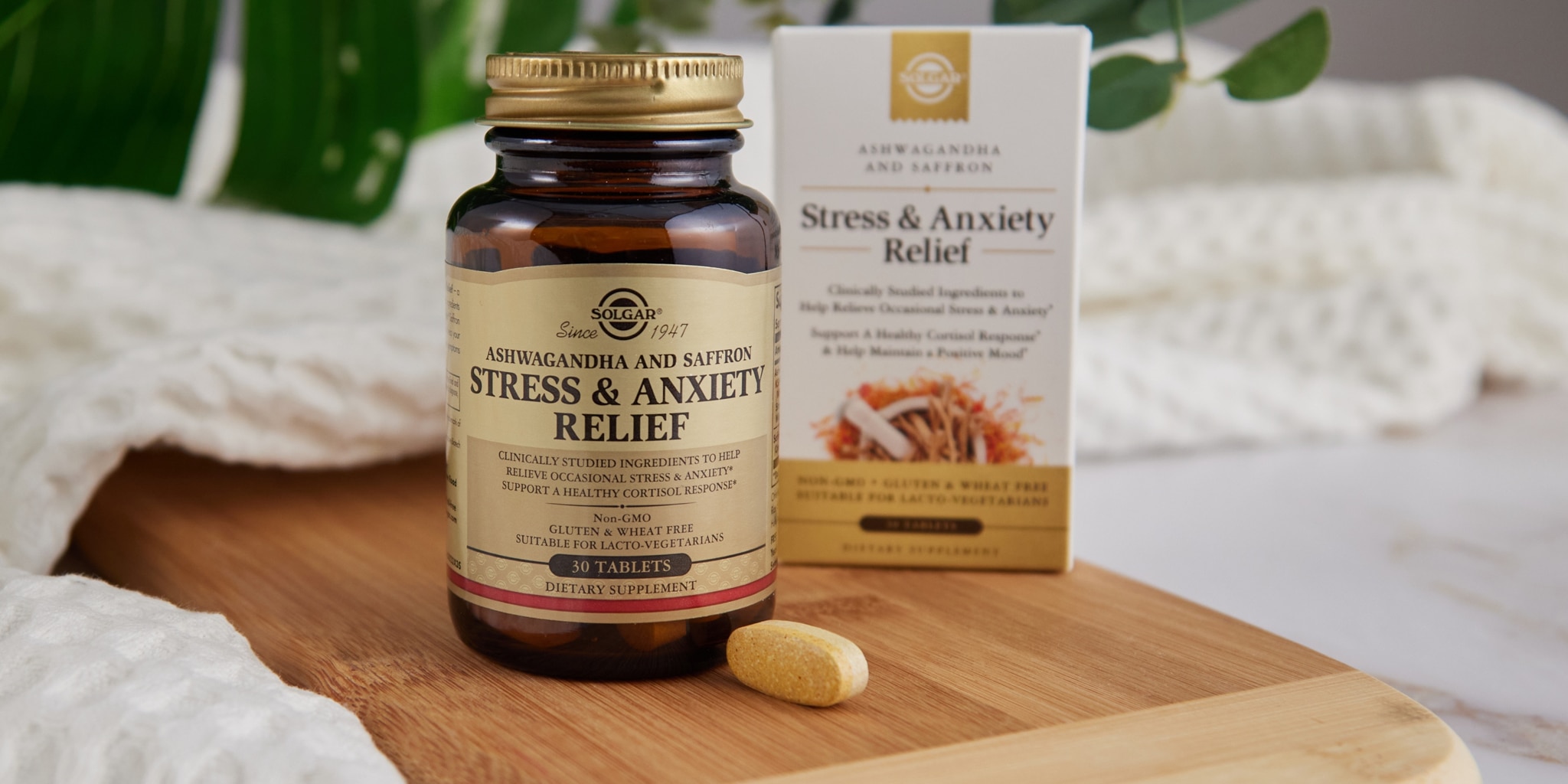
SOLGAR® STRESS & ANXIETY RELIEF
Solgar® Stress & Anxiety Relief is a unique supplement specifically formulated to help your body better manage the disruptive symptoms of occasional emotional stress.* It does so by combining two powerful, clinically-studied ingredients KSM-66® Ashwagandha and affron® Saffron.
KSM-66® Ashwagandha is the most clinically-studied form of ashwagandha – a traditional, adaptogenic herb shown to help relieve occasional stress and anxiety.* affron® Saffron is a spice derived from the flower of Crocus sativus, to help maintain a positive mood and support emotional well-being.*
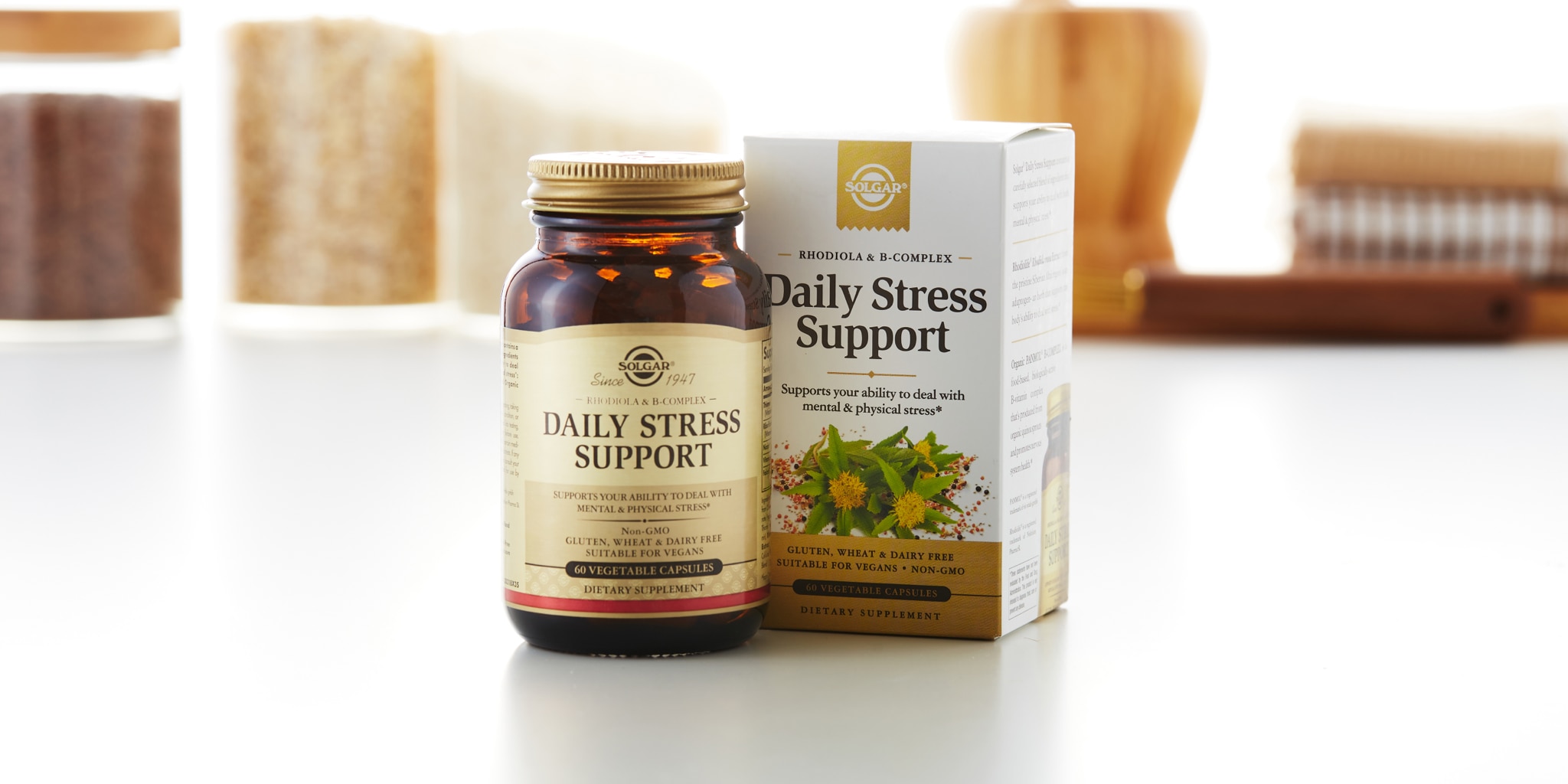
SOLGAR® DAILY STRESS SUPPORT
Solgar® Daily Stress Support is a 100% drug-free and non-habit-forming way to support your ability to deal with occasional mental and physical stress.*
Each serving:
- Builds your body’s resistance to stress*
- Aids in your ability to deal with mental and physical stress*
- Helps provide relief from occasional stress-related mental fatigue*
- Supports your ability to stay calm*
- Supports energy metabolism and nervous system health*
And, it’s non-GMO, vegan, gluten-free, and dairy-free!
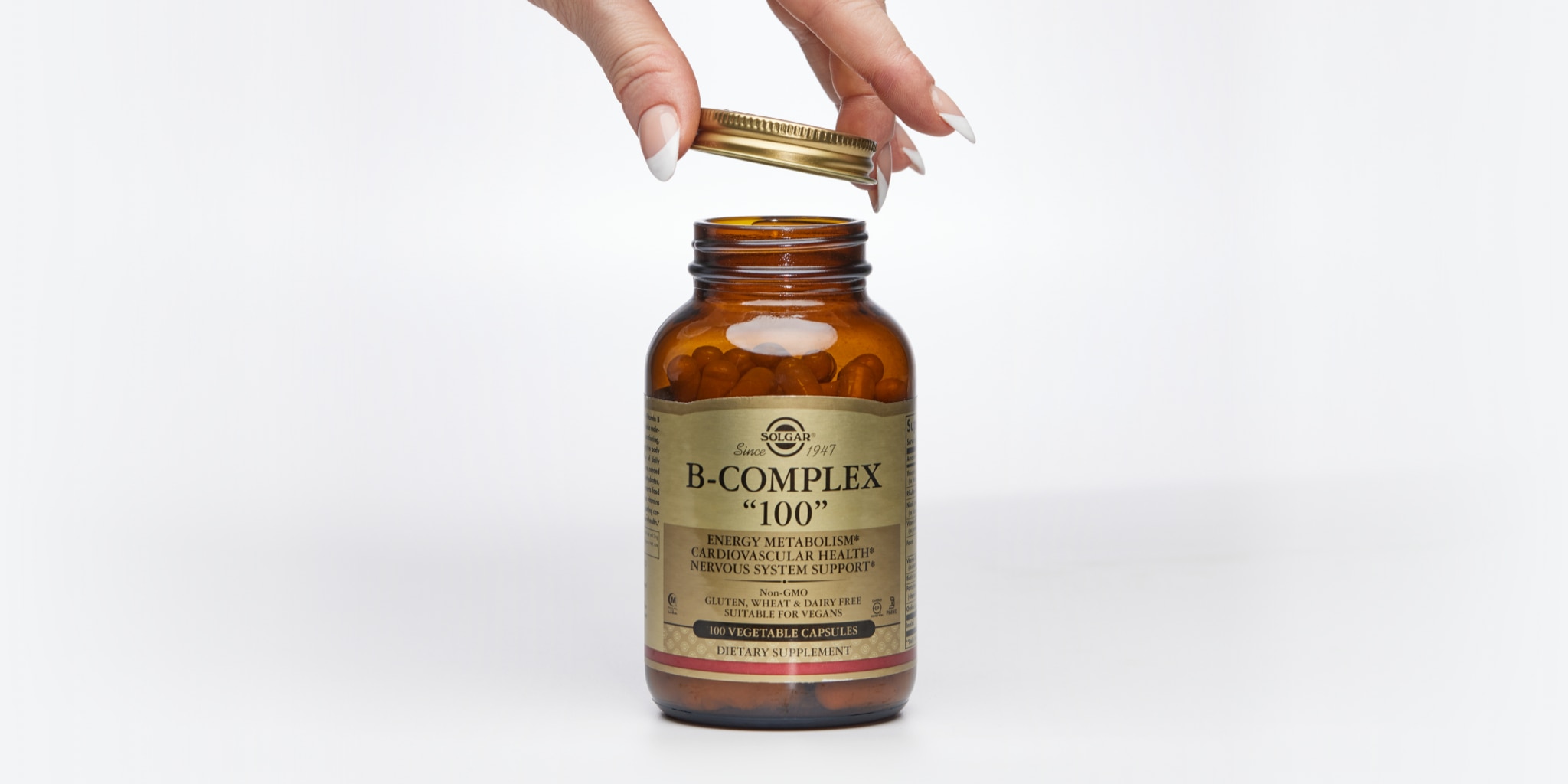
SOLGAR® B-COMPLEX “100”
Solgar® B-Complex “100” contains all the B vitamins your body needs to convert carbohydrates, proteins, and fats into cellular energy.* Each serving helps:
- Provide support for the occasional stress of daily living*
- Support daily energy*
- Maintain cardiovascular and nervous system health*
- Maintain healthy hair, skin, and nails*
And it’s non-GMO, vegan, gluten-free, dairy-free, kosher, and halal!
4. Practice breathing exercises
What could be an easier way to cope with stress than breathing? Taking a few deep breaths from the diaphragm has been shown to lower cortisol levels, which can help reduce stress.12
5. Listen to music
Sometimes all you need to do is put on your favorite tune. Research shows that certain types of music, such as Mozart, can have significant stress-reducing effects on people.13
The best supplements for heart health
Omega-3 Fatty Acids
Omega-3’s, specifically EPA and DHA, have been shown to help maintain healthy levels of triglycerides and HDL (“good”) cholesterol.*

Omega-3 Fatty Acid Supplements
Solgar® Triple Strength Omega-3 is our highest concentration of naturally-sourced omega-3 fatty acids. One serving of these softgels provides 950mg of EPA, DHA, and other omega-3 fatty acids to help maintain optimal cardiovascular health.
Solgar® Wild Alaskan Full Spectrum™ Omega contains 100% pure wild Alaskan salmon oil from sustainably sourced sockeye salmon to provide a rich source of EPA and DHA.
CoQ-10
Coenzyme Q10 (CoQ-10) is a vital antioxidant found in your heart, liver, and kidneys. CoQ-10 levels may be affected by statin drugs or by exercise and environmental stressors.†
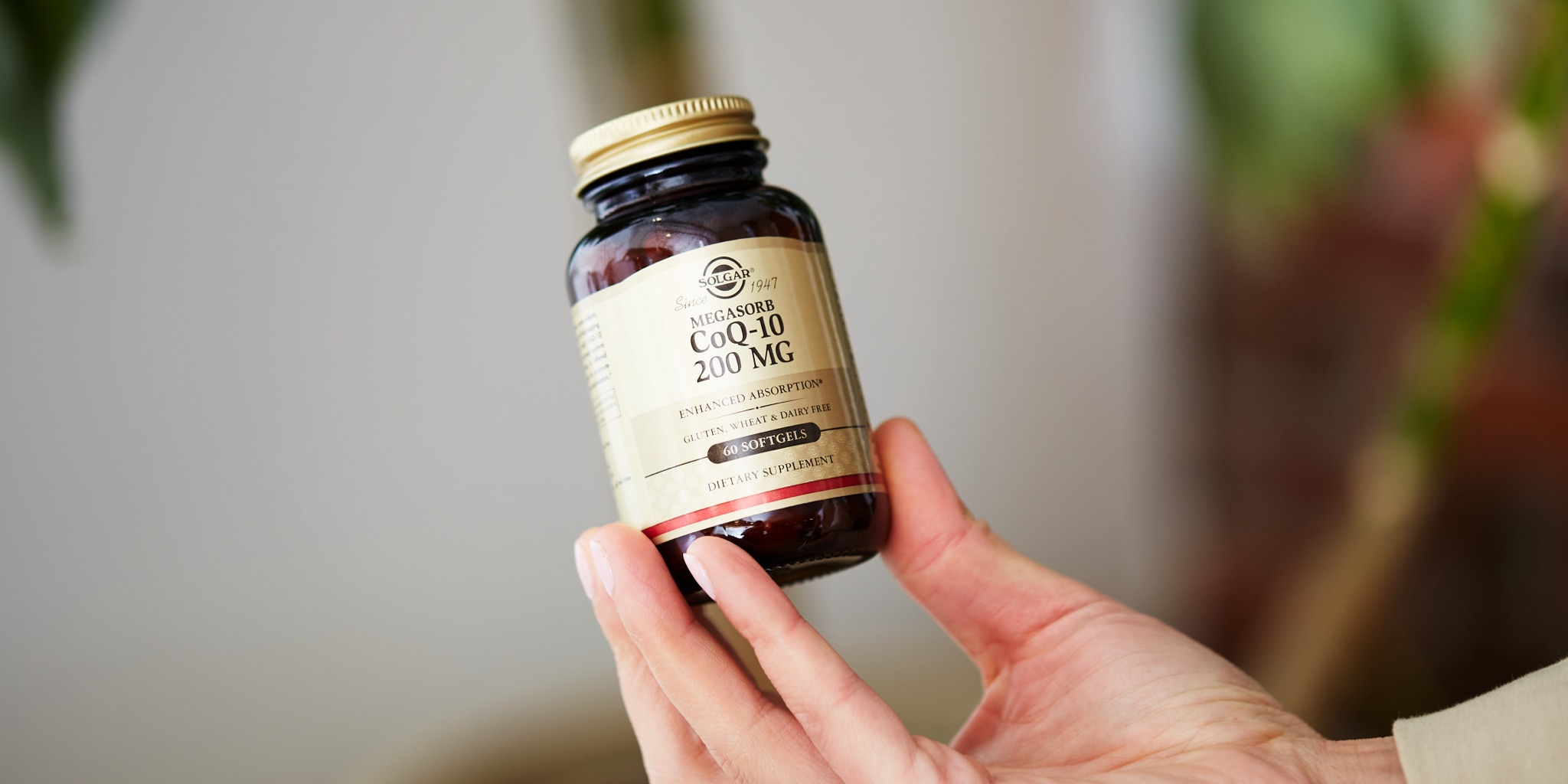
CoQ-10 Supplements
Solgar® Megasorb CoQ-10 Softgels help maintain cardiovascular health, provide antioxidant support, and support cellular energy production.*
Solgar® Vegan CoQ-10 offers all the great benefits of CoQ-10 in a vegan-friendly capsule.
Summing it up
Both acute and chronic stress can have detrimental effects on heart health. While acute stress most often causes sudden, temporary effects on the heart, chronic stress can cause lasting damage and lead to unhealthy lifestyle choices that can also affect heart health, such as smoking or avoiding exercise. Solgar offers a variety of quality, science-backed supplements that support stress management and heart health.*
Want easy tips on staying healthy? Follow us on Tiktok! (@solgarvitamins)
†Coenzyme Q-10 is not intended to serve as a replacement for Statins, nor should you discontinue taking any prescribed medications while supplementing with CoQ-10.
*These statements have not been evaluated by the Food and Drug Administration. These products are not intended to diagnose, treat, cure or prevent any disease.
The information provided on this site is intended for your general knowledge only and is not a substitute for professional medical advice or treatment for specific medical conditions. Always seek the advice of your physician or other qualified healthcare provider with any questions you may have regarding a medical condition. The information on this website is not intended to diagnose, treat, cure or prevent any disease. Never disregard medical advice or delay in seeking it because of something you have read on the Solgar® site.



